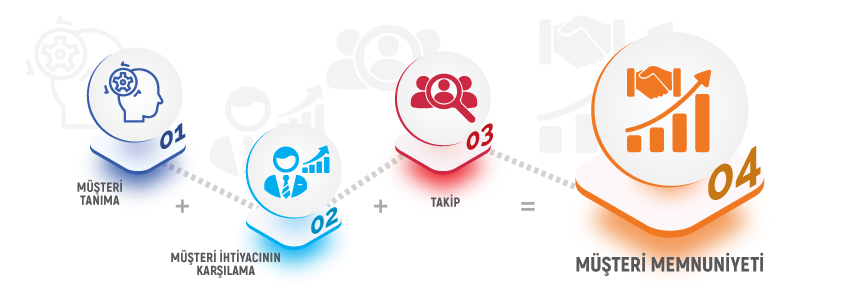CRM Modülü
CRM Modülü
Nitro Smart CRM Modülü
Potansiyel müşteriler veya mevcut müşteri kitlelerini kayıt altına almak, grup oluşturmak veya yönetebilmek amacıyla müşteri yönetimine ihtiyaç duyarız. CRM modülü müşteri odaklı çalışmaktadır.
Yani, crm müşterileri tanımak, müşteri ihtiyacını anlamak, müşteri ihtiyacına göre servis ve hizmer geliştirmek gibi müşterilerin beklentileri, hedefleri ve isteklerine göre yön verebilen bir modüldür.
Türkiye’nin En Gelişmiş CRM Modülü

CRM modülü potansiyel/cari kayıt yönetimi, müşterilere özel fırsatlar tanımlama, müşterilerle görüşmeden sonra sistem üzerinden görüşme notu ekleme ve takvim/ajanda desteği gibi birçok modüllerle entegre olarak ilerlemektedir.
Ayrıca CRM modülü üzerinden satıcılar bir ürüne veya ürünlere ait güncellemeleri, değişimleri veya yenileme gibi süreçleri gibi satın aldıktan belli bir zaman sonra bu belirtilen aşamalara sahip ürünleri takvime/ajandaya ekleyerek belirlenen sürede sistem tarafından uyarı gelmektedir. Böylece uygulama sayesinde firmalar ürünlerin uzun vadede kullanımı açısında güncel versiyona sahip olmasını sağlamaktadır.
Bu durum sonucunda Firma’nın müşteri sadakati firmanın sağladığı bu güven mekanizması sayesinde uzun vadede bağlılık kazanacaktır. Firmanın gelişim süreci hızlanacak böylece firma müşteri portföyünü geliştirecektir.
Ayrıca, CRM modülü üzerinden firma istediği firmaya veya kişiye özel teklifler sunabilir. Buna ek olarak indirim oranlarını firmalara göre entegre edebilir. Örneğin, Satıcı bir firma, alıcı bir firmanın yapacağı bütün alışverişlerinde %10 ıskonto uygulayabilir. Bu aşamayı sisteme tanımlayarak otomotik olarak alıcı firma her alışverinde %10 iskonto uygulanarak satın alma işlemini geçrekleştirebilir. CRM modülü, stok modülü, muhasebe modülü ve satış modülü gibi birçok modülle entegre halinde ilerlemektedir. CRM modülü firmaların gelişim süreçlerinde büyük bir öneme sahiptir.










